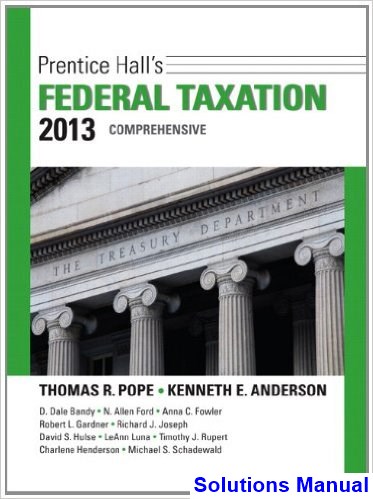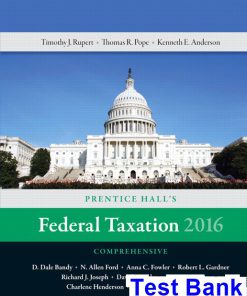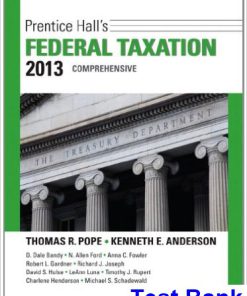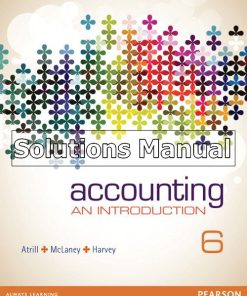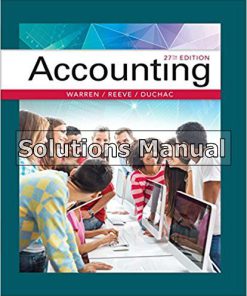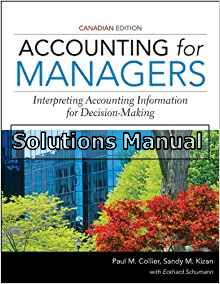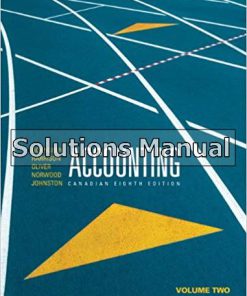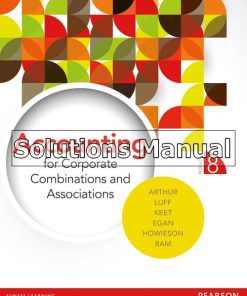Prentice Halls Federal Taxation 2013 Comprehensive 26th Edition Pope Solutions Manual
$26.50$50.00 (-47%)
Prentice Halls Federal Taxation 2013 Comprehensive 26th Edition Pope Solutions Manual.
You may also like
This is completed downloadable of Prentice Halls Federal Taxation 2013 Comprehensive 26th Edition Pope Solution Manual

Product Details:
- ISBN-10 : 0133035182
- ISBN-13 : 978-0133035186
- Author:
The Pope/Anderson/Kramer series is unsurpassed in blending the technical content of the most recent federal taxation mandates with the highest level of readability and relevancy for students.
Table of Content:
Chapter 1C:
Tax research is the process of solving the problems related to tax by applying the tax law relevant to the client. Tax research is also performed to understand the tax consequences of a transaction.
A closed-fact situation is a situation in which a fact has already happened. In such a situation, a tax advisor analyzes the facts that are happened, and determines proper tax treatments.
On the contrary, an open-fact situation is a situation in which a fact does not happen for the time being. In such a situation, a tax advisor plans for the facts, shapes the facts that might be happen in the future, and hence produces desirable tax results.
Chapter 2C:
The entities or business forms that are available for a new enterprise are
• C corporation,
• Limited liability company (LLC)
• S corporation
• Sole proprietorship
• Partnership
• Limited liability partnership (LLP)
From the standpoint of the federal income tax law, taxpaying entities are required to pay income taxes on their taxable incomes. The major taxpaying entities are
• Individuals
• C corporations (regular corporations)
From the standpoint of the federal income tax law, flow-through entities do not directly pay income taxes on their taxable income but pass the income on to taxpaying entities. The major flow-through entities are
• Sole proprietorship
• Partnerships
• S corporations
• Limited Liability Company (LLC)
• Limited liability Partnership (LLP)
• Trusts
Some entities are hybrid entities and do not fall within either category. For example, S corporations are subject to income taxes in some situations.
Double taxation means that an identical amount is taxed two times. Double taxation occurs when a C corporation distributes dividends to its shareholders. First, the corporation will be taxed because the corporation’s income on business, and then the individual will be taxed because of the individual’s income on dividends.
Limited liability companies (LLCs) are flexible forms of enterprise that contains elements of partnership and corporate structures. LLCs are not corporations, but are legal forms of company which offer limited liability to their owners.
From the federal income tax aspects, LLCs are taxed, in general, as partnerships. This type of entities is classified as flow-through entities.
Flow-through entities do not directly pay income taxes on their taxable income but pass the income on to taxpaying entities. Thus, taxable incomes of LLCs are not subject to income tax, and are allocated to owners.
Under tax laws, partners are able to increase their basis in the partnership for any income that is allocated to the partner. In this way, double taxation can be prevented.
Likewise, partners are able to decrease their basis for any deduction that is allocated to the partner. In this way, double deductions can be prevented.
People Also Search:
prentice halls federal taxation 2013 comprehensive pope
prentice halls federal taxation 2013 comprehensive 26th edition pope
cch federal taxation comprehensive topics
|
2 principles of taxation
|

